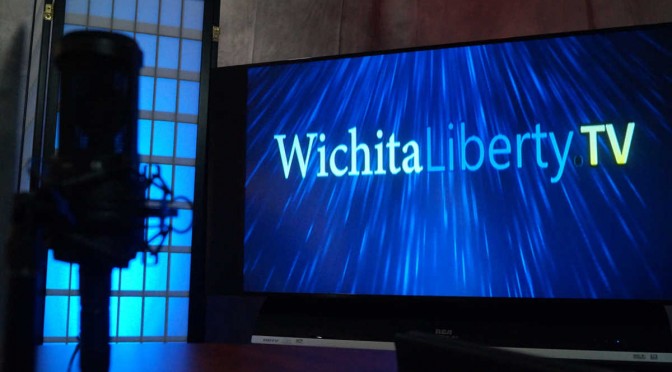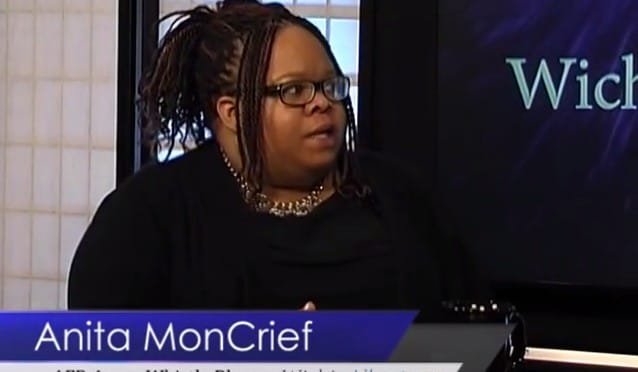The political left’s campaign to silence opponents and reorder society in accordance with their personal beliefs is in many ways the single greatest threat to America’s experiment in self-governance, writes Mark Holden.
The unprecedented campaign against free speech
By Mark Holden. Originally published in The Hill.
The liberal Supreme Court Justice Oliver Wendell Holmes once warned of the biggest danger facing free speech: “If you have no doubt of your premises or your power, and want a certain result with all your heart, you naturally express your wishes in law, and sweep away all opposition.”
Yet many lawmakers today are mistaking his wise warning as an invitation to restrict the First Amendment. At nearly every level of government, freedom of speech is under unprecedented attack. Many on the political left now seek to silence their opponents and reorder society in accordance with their personal beliefs. This is in many ways the single greatest threat to America’s experiment in self-governance.
This coordinated campaign has been underway for years. Its creation can be traced to the Supreme Court’s 2010 decision in Citizens United v. Federal Election Commission, when the court refused to accept the Obama administration’s argument that it could ban books, mailers, advertisements or anything else that contained a political message during an election campaign. This simple ruling ensured that Americans retained the fundamental right to use free speech to praise or criticize a candidate running for office.
However, that is the very core of free speech itself. If Americans — individually or acting together through nonprofits, businesses or labor unions — cannot voice their views on public policy and elected officials, then the democratic process as we know it is dead. The result is a system that makes those already in power even more powerful; incumbents need not fear having those pesky voters learn about their statements, views and voting records.
In fact, liberal politicians and activists swiftly made opposition to Citizens United a defining part of their platform from the moment the Supreme Court issued its decision. By 2014, no fewer than 54 U.S. Senators — all Democrats or Democratic allies such as current presidential candidate Sen. Bernie Sanders (Vt.) — supported a constitutional amendment essentially rewriting the First Amendment so that the federal government could regulate and criminalize free speech. Congressional Democrats are once again preparing to make a push to roll back the court’s decision and stifle free speech.
Not to be outdone, leading Democratic presidential candidate Hillary Clinton has declared that she would only appoint judges who promise to overturn Citizens United and permit the censorship of political speech.
At the same time, lawmakers and their allies have found other ways to stifle their opponents’ speech. Americans learned in 2013 that the IRS had systematically singled out conservative nonprofits in the build-up to the 2012 election. The agency harassed many applicants and kneecapped others by refusing to grant them tax-exempt status, restricting their members and supporters from exercising their rights to free speech and free association.
Sadly, this abuse of power still occurs. The federal courts recently learned that multiple nonprofits still haven’t received IRS approval.
Even more attacks on free speech are happening at the state level. For example, New York and California are both demanding that some nonprofits hand over lists of donors to the state. Although the government invariably promises to not release this legally confidential information, California has “accidentally” posted at least 1,400 supporter lists online.
This fact, and ongoing harassment by California Attorney General Kamala Harris, led a federal judge to permanently stop her from obtaining the donor list of one organization, the Americans for Prosperity Foundation. (Full disclosure: I am a director of the related Americans for Prosperity.) However, the IRS has done something similar, conveniently disclosing confidential taxpayer information for several of the Obama administration’s political opponents.
And then there are the demands that government investigate organizations that hold unpopular or controversial views. Over a dozen state attorneys general (all of them Democrats), recently announced that they will go after companies such as Exxon Mobil that disagree with their views on climate change. The prosecutors’ goal is to intimidate these groups to change their position or else face criminal prosecution.
Federal lawmakers are in on the action, too. The Department of Justice has asked the FBI to begin similar investigations of major energy companies. Sen. Sheldon Whitehouse (D-R.I.) has even called for organizations that disagree with him to be prosecuted under the federal law banning racketeering — a law originally meant to target mobsters and drug kingpins.
This coordinated campaign is antithetical to the First Amendment’s guarantee of free speech. In our system of self-government, when someone finds other people’s ideas and opinions disagreeable or even reprehensible, the solution is more speech, not less. Yet instead of persuading others to see their point of view, many in today’s society would rather use government’s power to bully their opponents into silence instead.
Thankfully, Senate Majority Leader Mitch McConnell (R-Ky.) and House Speaker Paul Ryan (R-Wis.) have tried to combat this assault on free speech. They have championed a number of reforms to protect the First Amendment and prevent elected officials and the administrative state from stifling Americans’ right to free speech.
Their leadership should be praised, but much more needs to be done. This fundamental right won’t truly be protected until Americans of all political persuasions heed Justice Holmes’s wise words.
Holden is senior vice president and general counsel of Koch Industries, Inc. and a director of Americans for Prosperity. (The chairman of the Americans for Prosperity Foundation, David Koch, is also executive vice president and director of Koch Industries.)




